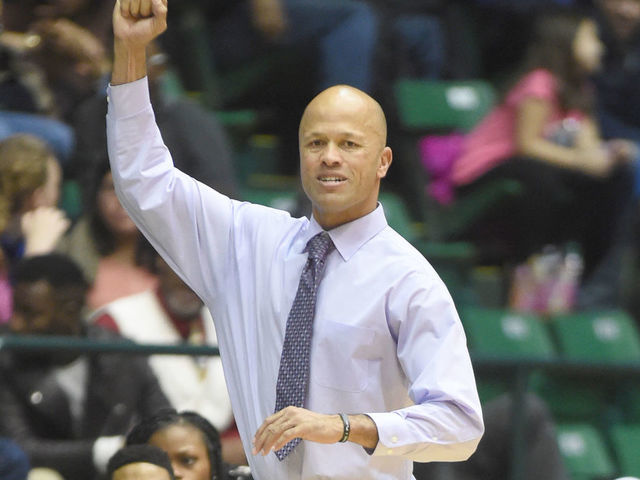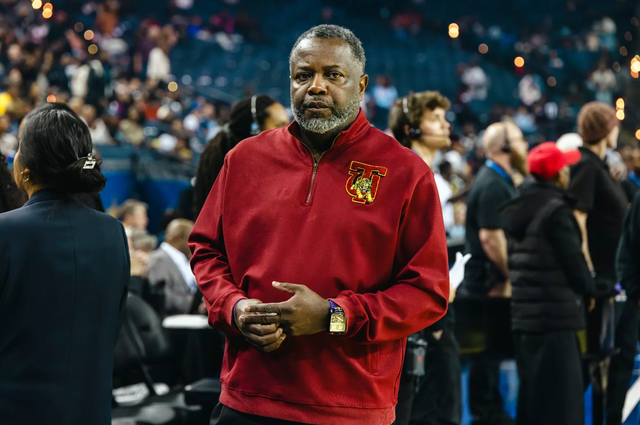“Not only do Black lives matter, Black minds, Black academics, Black intellectualism, and Black culture matter, too.” This powerful line is a part of the recent piece on the future of HBCUs from Raymond Pierce at Forbes. Pierce has formerly served as Dean of Law at North Carolina Central University. Read how the thinks HBCUs are being elevated by new funding, determined students, and a mission to serve their communities below.
Last year, MacKenzie Scott, one of the wealthiest women in the world donated billions of dollars to Historically Black Colleges and Universities (HBCUs), the United Negro College Fund, and the Thurgood Marshall College Fund, along with other minority-serving institutions and organizations. The investment was seen in many quarters as a lifeline to these important institutions of higher learning.

Scott may have been influenced in part by donations of $120 million to HBCUs and the United Negro College Fund made by Netflix co-founder and CEO Reed Hastings and his wife. These philanthropists were certainly influenced by the events of the summer of 2020, which highlighted the continued injustices Black people face every day and focused a nation’s attention on the systemic racism and inequality that faces Black America.
Scott and Hastings are sending an important message: Not only do Black lives matter, Black minds, Black academics, Black intellectualism, and Black culture matter, too. And philanthropy must expand, deepen, and extend their efforts to embrace the institutions that continue to develop and promote Black leadership. This is a recognition that HBCUS are an indispensable and undeniable component of any strategy to address these systemic inequities.
It’s not by chance that our first Black (and Southeast Asian) female Vice President is the graduate of an HBCU. Nor is it by chance that other national leaders, from those who passed last year – Congressman John Lewis, Rev. Joseph Lowery, and the Rev. C. T. Vivian – to newer leaders, like U.S. Senator Raphael Warnock and Stacey Abrams, all graduated from HBCUs.
In addition, new data from LinkedIn News finds great employer demand for HBCU graduates. According to the report’s author, George Anders, “Quietly, HBCUs and their alumni have emerged as stars in the never-ending U.S. hunt for talent. During the past five years, the hiring-rate trend for alumni of the 105 HBCUs has consistently outpaced similar data for overall LinkedIn U.S. membership.” The report finds that the HBCU hiring rate climbed an average of 5.9 percent a year during the strong job markets of 2016 through 2019 – well ahead of the overall U.S. growth rate of 1.3 percent.
And this important trend isn’t relegated to the boom years of 2016 – 2019, Anders also reports that HBCU alumni hiring was less affected by the pandemic than the workforce at large. While U.S. hiring trends turned negative across the board during 2020, HBCU alumni showed above average resilience with a hiring rate decline of just -11.9 percent, compared with -16.2 percent for all U.S. LinkedIn members.
HBCUs give students of color, particularly African Americans, access to higher education that recognizes and honors their culture in a world that has sought to suppress and deny that same culture. That suppression of Black culture was part of enslavement. To this day, vestiges of that period remain embedded in our society and our culture, and they serve as reminders that to many people Black culture does not count.
HBCUs also provide important confirmation of Black intelligentsia and the Black existence. In short, they confirm that Black Lives Matter in a country and world that still wants to deny that. And it is why now, more than ever, we need Black colleges and universities to continue to provide education, research, scholarship, thought power and ideas to this country and the world.
Historically, philanthropy has been one of the twin drivers of Black education, including higher education. The other driver was the passion and the will of emancipated Blacks in the South who sought education for themselves and their children. They worked in concert with northern philanthropists, many of whom were members of the Abolitionist movement, who funded activities to support African American education. They purchased and shipped books to the South, they built schools and trained teachers. In short, they built an entire system to educate Black people and poor whites that never existed before, from elementary school through university. The passion and drive of Black people to get their children educated, combined with the philanthropy of whites in the North, saw the birth of what today are HBCUs.
There is no question that HBCUs are central to African American scholarship and success. They are an effective and critical means for education, elevation, and equity. As we have seen too well this past year, we have not achieved racial equity in our nation. In fact, nowhere close. HBCUs must continue to be included in any formula to advance African Americans.
From its inception, the Southern Education Foundation (SEF) has supported Black higher education. The Slater Fund (which eventually merged with other northern philanthropies supporting Black education during Reconstruction – the Peabody Fund, the Jeanes Fund and the Randolph Fund— to create what today is SEF) birthed or supported most of the Black colleges in the South. Now, we are working with HBCUS to help them take advantage of this transformative time in our nation’s history to further develop leadership, increase the value of their liberal arts programs for students, engage in faculty and program development, and lift up the voices and the value of black scholarship.
That work includes supporting the first ever Center for the Study of HBCUs at Virginia Union University and working with a pilot a group of HBCUs to advance liberal arts education through the use of transformative texts to expand the awareness and knowledge of HBCU graduates so they are better equipped to navigate the intricate diversities of an increasingly globalized world.
HBCUs have been and continue to be central to Black scholarship and to the inclusion of Black voices in the American dialogue. The thoughts and theories of Black scholars, enhanced and sharpened by the freedom they enjoy on historically Black campuses, bring unique and needed perspectives to important national conversations. Perspectives that sometimes make all the difference in how our nation approaches the critical issues of the day.



